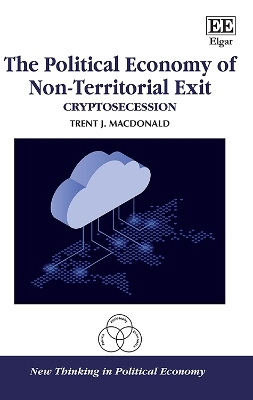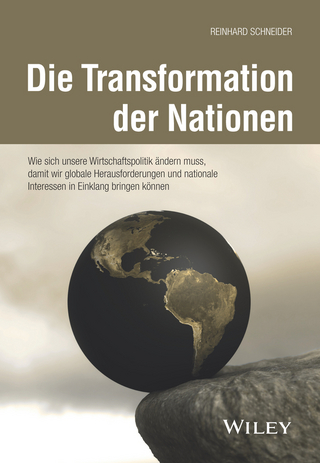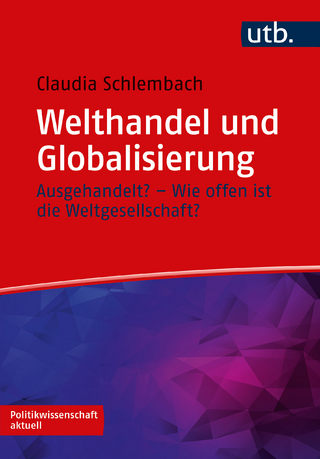
The Political Economy of Non-Territorial Exit
Cryptosecession
Seiten
2019
Edward Elgar Publishing Ltd (Verlag)
978-1-78897-937-5 (ISBN)
Edward Elgar Publishing Ltd (Verlag)
978-1-78897-937-5 (ISBN)
Territorial political organisation forms the backbone of western liberal democracies. The Political Economy of Non-Territorial Exit explores the theoretical possibility of ‘unbundling’ government functions and decentralising territorial governance.
Territorial political organisation forms the backbone of western liberal democracies. However, political economists are increasingly aware of how this form of government neglects the preferences of citizens, resulting in dramatic conflicts. The Political Economy of Non-Territorial Exit explores the theoretical possibility of 'unbundling' government functions and decentralising territorial governance.
Employing a variety of theoretical approaches, including new institutional economics, comparative analysis, public choice and Hayekian political economy, Trent J. MacDonald investigates the prospects of a government that separates its traditional functions and decentralises control to non-territorial jurisdictions. Following the history of political-economic thought, the author uncovers an extensive history of non-territorial governance, and provides insight into present-day examples. He emphasises the political mechanism of 'non-territorial secession' and the emerging phenomenon of 'cryptosecession' as the theoretical future of governance. Through an extension of the Coase theorem, this intricate book examines how political systems and jurisdictions change, developing a new theory of spontaneous order.
A provocative and enlightening investigation of modern political organisation, MacDonald's vast study is an ideal theoretical guide for scholars and students of political economy. This book also contains critical ideas for policy-makers seeking guidance for the future of political organisation in an increasingly non-territorial world.
'Non-territorial exit (by cryptosecession) may well be the predominant means of political reorganisation in the world of tomorrow. Trent MacDonald has written a highly original, engaging and deeply profound book analysing how this might work and what it implies for economics, society and politics. A hugely important new idea.'
- Jason Potts, RMIT University, Australia
Territorial political organisation forms the backbone of western liberal democracies. However, political economists are increasingly aware of how this form of government neglects the preferences of citizens, resulting in dramatic conflicts. The Political Economy of Non-Territorial Exit explores the theoretical possibility of 'unbundling' government functions and decentralising territorial governance.
Employing a variety of theoretical approaches, including new institutional economics, comparative analysis, public choice and Hayekian political economy, Trent J. MacDonald investigates the prospects of a government that separates its traditional functions and decentralises control to non-territorial jurisdictions. Following the history of political-economic thought, the author uncovers an extensive history of non-territorial governance, and provides insight into present-day examples. He emphasises the political mechanism of 'non-territorial secession' and the emerging phenomenon of 'cryptosecession' as the theoretical future of governance. Through an extension of the Coase theorem, this intricate book examines how political systems and jurisdictions change, developing a new theory of spontaneous order.
A provocative and enlightening investigation of modern political organisation, MacDonald's vast study is an ideal theoretical guide for scholars and students of political economy. This book also contains critical ideas for policy-makers seeking guidance for the future of political organisation in an increasingly non-territorial world.
'Non-territorial exit (by cryptosecession) may well be the predominant means of political reorganisation in the world of tomorrow. Trent MacDonald has written a highly original, engaging and deeply profound book analysing how this might work and what it implies for economics, society and politics. A hugely important new idea.'
- Jason Potts, RMIT University, Australia
Trent J. MacDonald, Roy Morgan Research, Australia
Contents: Introduction Preface 1. Economic theory of non-territorial unbundling 2. History of an idea 3. The political-jurisdictional Coase theorem 4. Political-jurisdictional possibilities and transitions 5. Theory of non-territorial internal exit 6. Spontaneous order in the formation of non-territorial political jurisdictions Summary and conclusion References Index
| Erscheinungsdatum | 01.07.2019 |
|---|---|
| Reihe/Serie | New Thinking in Political Economy series |
| Verlagsort | Cheltenham |
| Sprache | englisch |
| Maße | 156 x 234 mm |
| Themenwelt | Wirtschaft ► Allgemeines / Lexika |
| Wirtschaft ► Volkswirtschaftslehre ► Wirtschaftspolitik | |
| ISBN-10 | 1-78897-937-0 / 1788979370 |
| ISBN-13 | 978-1-78897-937-5 / 9781788979375 |
| Zustand | Neuware |
| Haben Sie eine Frage zum Produkt? |
Mehr entdecken
aus dem Bereich
aus dem Bereich
Theorie und Anwendung
Buch | Hardcover (2024)
Vahlen, Franz (Verlag)
39,80 €
wie sich unsere Wirtschaftspolitik ändern muss, damit wir globale …
Buch | Hardcover (2024)
Wiley-VCH (Verlag)
39,99 €
ausgehandelt? – wie offen ist die Weltgesellschaft?
Buch | Softcover (2024)
UTB (Verlag)
22,00 €


